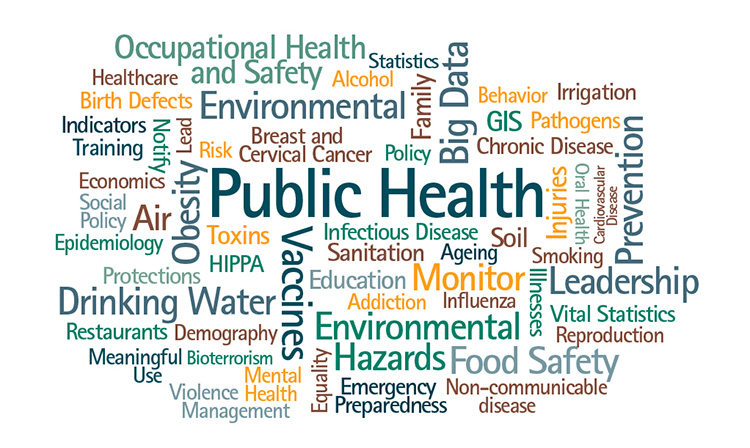A New Dawn? The expected future of quality public healthcare.

To provide quality public health services in Zimbabwe, the government needs to address several key areas. The elections are over and the CCC is working to get the results overturned. While they work on that, the citizens’ lives should move on. They need quality public health which is accessible to all. Therefore, below are some of the key areas the incoming government needs to work on. It will, however, take a lot of time, resources and effort but starting the process is the first step.
Increased Funding to reach quality public health services in Zimbabwe.
Firstly, the government should allocate a higher percentage of the national budget to the healthcare sector. There is an Abuja Declaration signed in 2001. It called for member states to allocate at least 15% of their national budgets to healthcare. Currently, healthcare expenditure in Zimbabwe is significantly lower than this target. This leads to inadequate funding for essential medical equipment, medicines, and healthcare infrastructure. As a member of this declaration, Zimbabwe is falling short.
With the just ended elections, the incoming government really needs to do better by increasing funding in this sector. Additionally, access to quality public health services in Zimbabwe is a mandate that every politician should work towards. Regardless of who is in the power, the people need to feel heard, seen and acknowledged. The next five years will be crucial for those in power. Also, those in opposition as well, as it will set the stage for the next election and their campaign and manifesto.
Policy reforms for quality public healthcare in Zim
Secondly, the government should prioritise and implement healthcare policies that benefit all Zimbabweans. In the past, health policies and strategic plans were often donor-funded and reflected the agendas of external funders. The government should take a more active role in setting healthcare policies to ensure they align with the needs of the population.
Moreso, to ensure appropriate policies are formulated, the government needs to work with stakeholders. Stakeholder engagement is ideal to come up with policies that are from the people, by the people. Additionally, these stakeholders include healthcare professionals, civil society organisations, ordinary citizens and community representatives. This engagement will greatly improve access to quality public health services in Zimbabwe.
Addressing Human Resource Shortages
Thirdly, the emigration of healthcare professionals from Zimbabwe is resulting in severe shortages of doctors, nurses and other healthcare workers. This exodus is negatively impacting the quality of healthcare services in the country. Additionally, healthcare professionals are flooding to countries like the United Kingdom with sponsorship. They pay hefty amounts to get a certificate of sponsorship. This only shows how bad the emigration process is.
Therefore, the government should prioritise efforts to attract and retain healthcare professionals. This is possible by improving their working conditions, remuneration and opportunities for professional development. Any employee goes to where they feel appreciation and value. Zimbabwe’s healthcare system has not been favourable to retain its employees. It is bedevilled with low income, low and non-existent resources and some allegations of harassment. A turn around in this area will enable access to quality public health services in Zimbabwe.
Improving Healthcare Infrastructure
Also, the government should invest in the rehabilitation and development of healthcare facilities. This includes upgrading existing hospitals and clinics. Moreover, building new healthcare infrastructure to ensure that citizens have access to quality public healthcare services is vital. The National Health Strategy for Zimbabwe emphasises the need to improve access to basic medical equipment. Additionally, it values access to essential medicines, as well as the rehabilitation of health-services infrastructure.
Under this, however, the government is improving as it is building new health care centres. With the help of external donors, the government has managed to build a number of health care centres in rural areas including rural urban areas. This is a welcome improvement regarding healthcare infrastructure. Additionally, it is a step in the right direction to improve access to quality public health services in Zimbabwe.
Health Education and Promotion
Finally, the government should prioritise health education and promotion programs to raise awareness about preventive measures, disease management and healthy lifestyles. This can help reduce the burden of preventable diseases, such as HIV/AIDS, malaria, and vaccine-preventable diseases. Health education programs should target all segments of the population, with a focus on vulnerable populations, pregnant women and children.
Programs as these are important from a very young age with appropriate language for each level. Roadshow informative campaigns, plays and dramas with infotainment content is vital to spread such messages. Government intervention and funding of these programs will improve access to quality public health services in Zimbabwe in the long run.
Conclusion
By addressing these key areas, the Zimbabwean government can work towards providing quality public health services for its citizens. However, it is important to note that these recommendations require long-term commitment and sustained efforts to achieve meaningful improvements in the healthcare system. These areas are just the tip of the iceberg of how to improve access to quality public health services in Zimbabwe. The government of Zimbabwe has a lot to do to ensure access to health services for its citizens.





